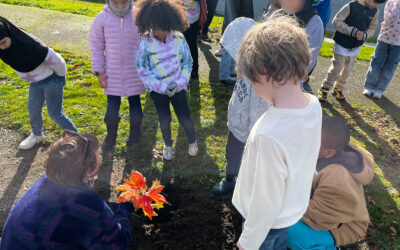In this video, you can see several examples of sixth-grade students interacting with each other’s reasoning as they work to make sense of how sound travels. Note how students engage directly with each other, and consider — what kinds of norms and supports might have cultivated these ways of interacting?
University of Washington: Designing for Ambitious Science Teacher Leadership Across School Districts
https://www.youtube.com/watch?v=Pr1UMKXnJZA...




 This site is primarily funded by the National Science Foundation (NSF) through Award #1907471 and #1315995
This site is primarily funded by the National Science Foundation (NSF) through Award #1907471 and #1315995